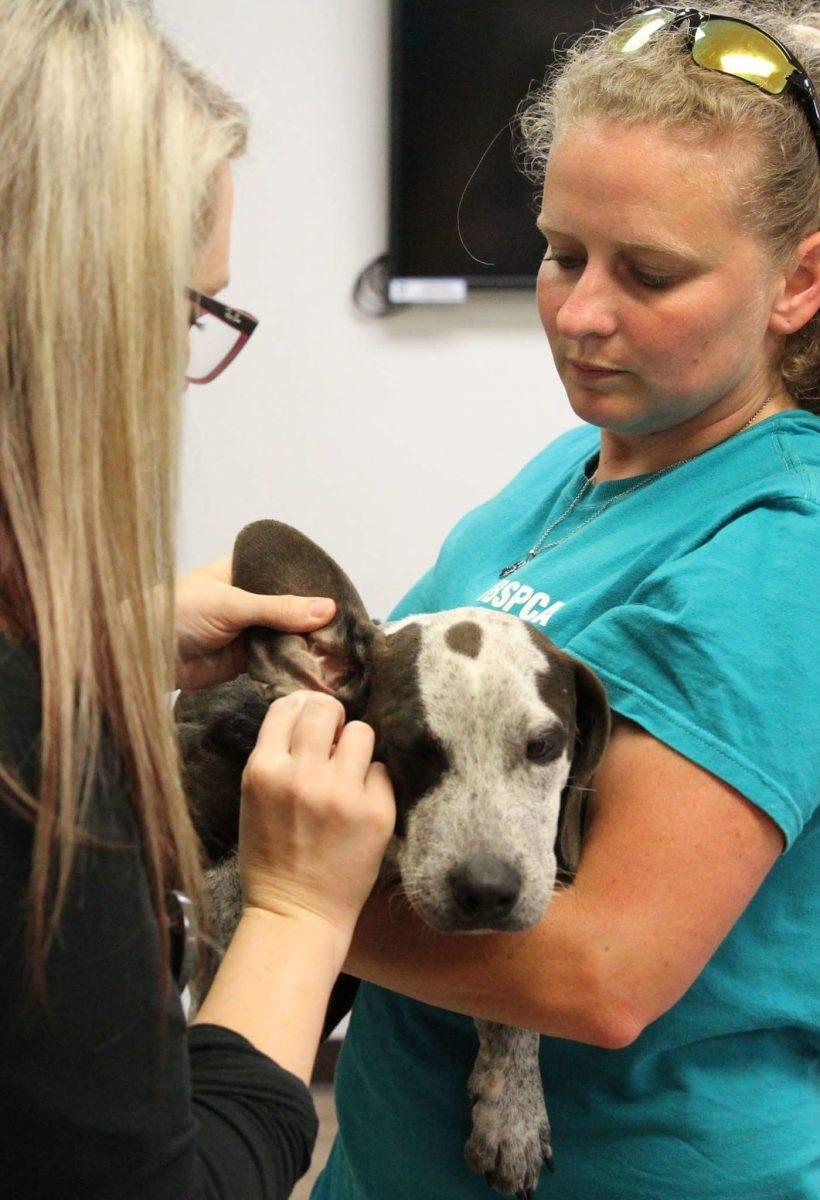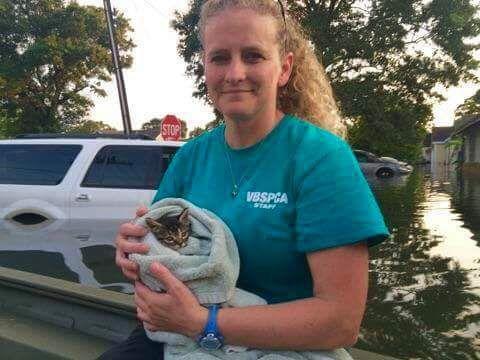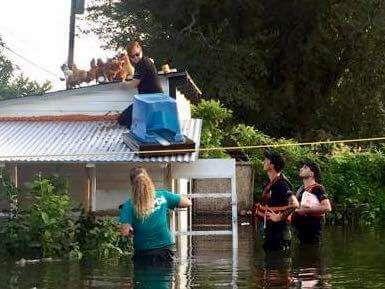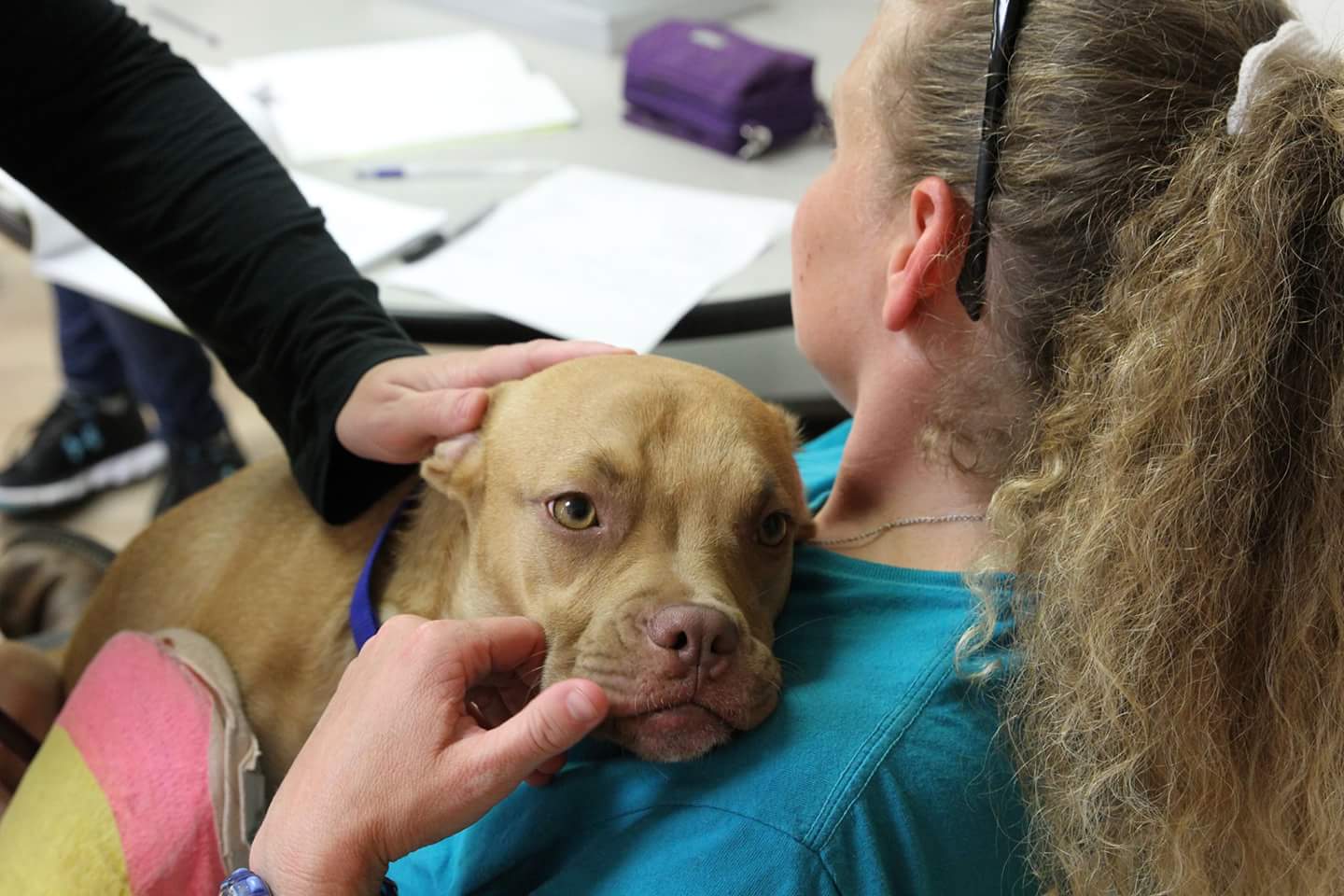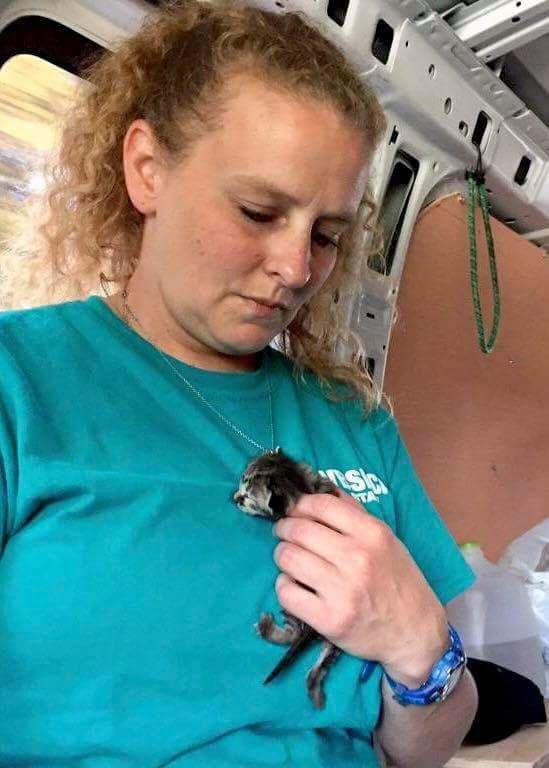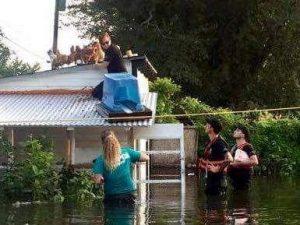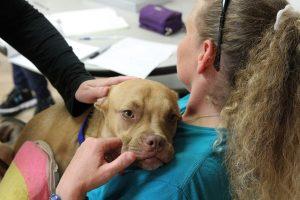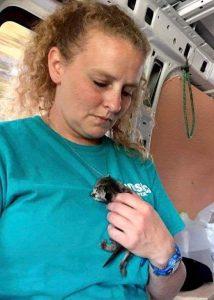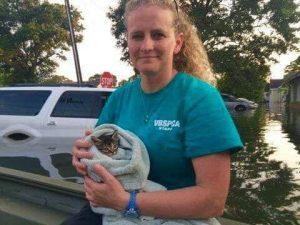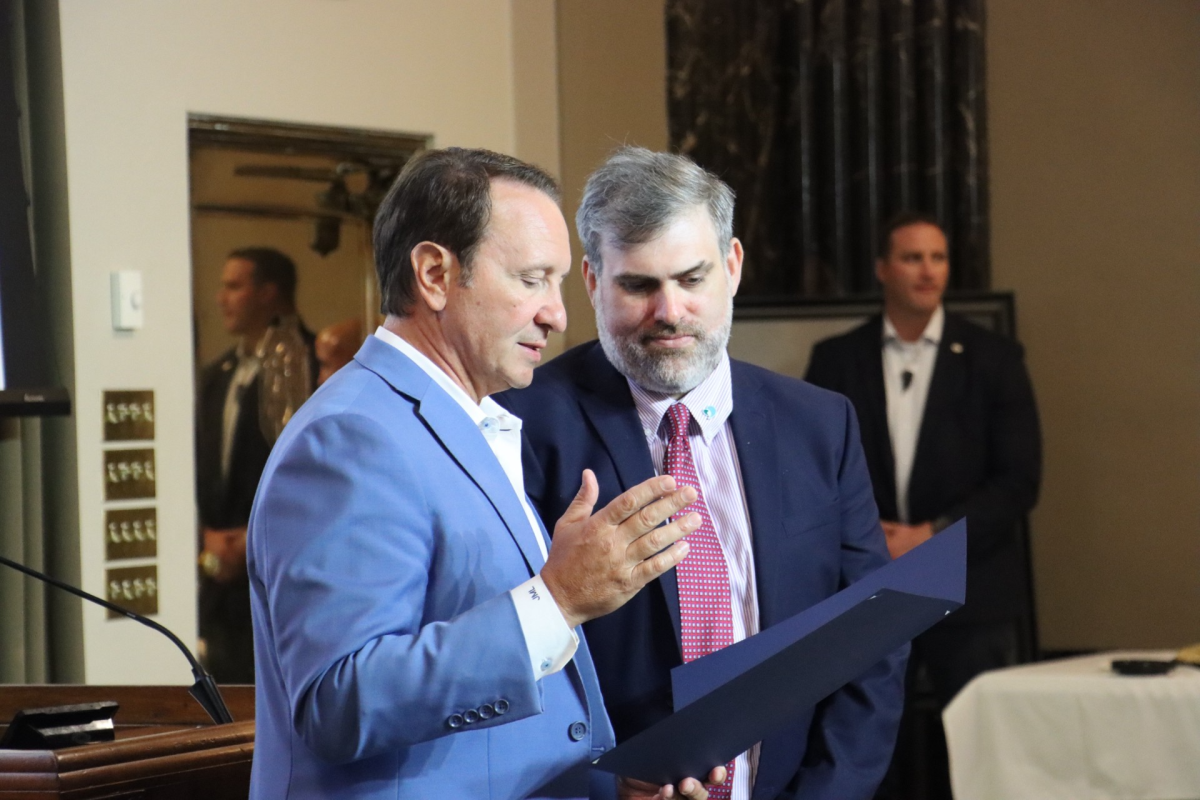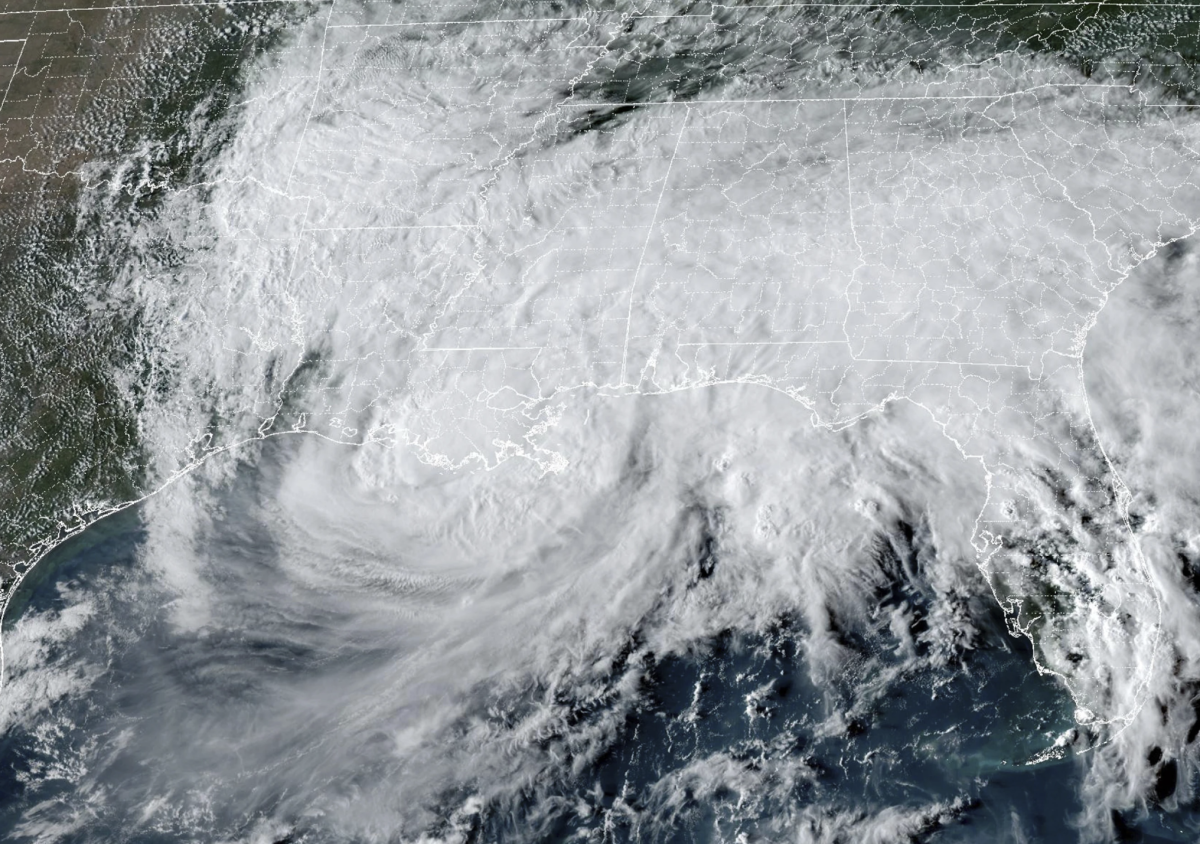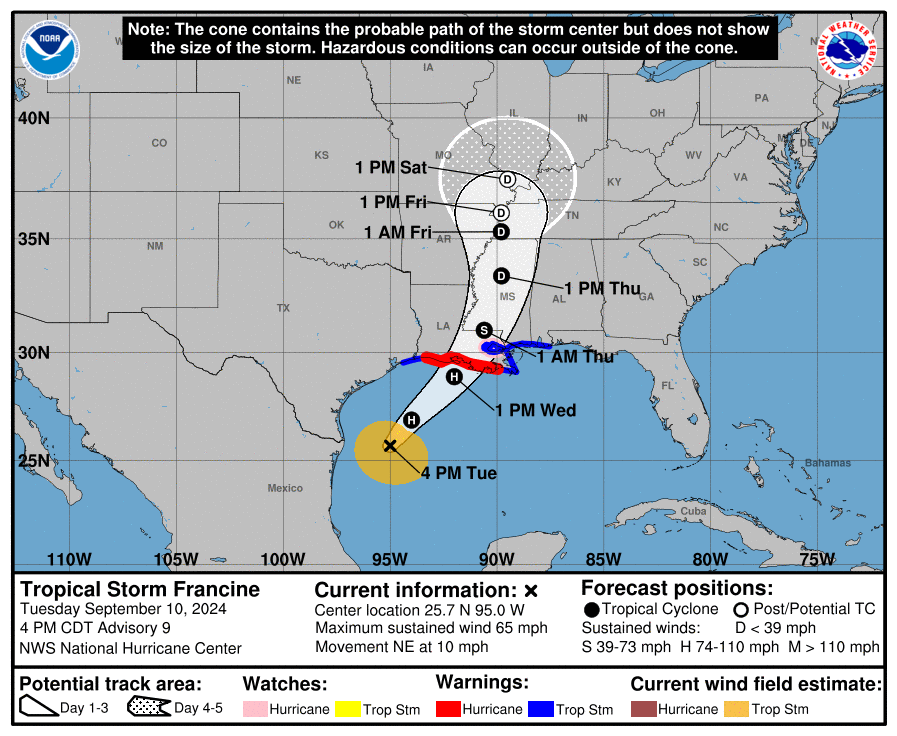After the devastation of Hurricane Harvey, one University alumna is hard at work saving those who cannot save themselves.
Jenny Teed is the director of shelter operation at the Virginia Beach Society for the Prevention of Cruelty to Animals. She traveled to Texas with the SPCA and PETA with over 1,000 pounds of food and supplies for pets abandoned during the flooding.
Teed and the VBSPCA have been working closely with PETA for some time, and during the Baton Rouge flooding in 2016, they asked Teed if she would come assist with rescue efforts.
“I jumped at the chance because that was the only way I could get down there,” Teed said. “This year, the team I worked with called again, and it was kind of a no-brainer.”
While their intention was to make it to Houston, they were unable to make it there and instead arrived in Port Arthur to spend the night. Teed said they were in the right place at the right time, when they woke after a night’s rest they found out the city was under water. Not only did they pull animals from the water, but they also rescued a number of families and helped take them to emergency shelters.
“I think we all were thinking that there would be plenty of help for people, and that we were needed as animal rescue,” Teed said. “It would up being both. When people are stranded and begging for help, the only thing to do is go and help get them out.”
Among the animals Teed and her team rescued are a number of dogs, cat and even chickens. The VBSPCA took in 19 pre-flood shelter animals to be put up for adoption.
“Anything we rescued in the field, which I think was around 40 or so animals, they either went right back to their owners or to a local parish shelter,” Teed said. “Usually it’s mandatory they stay in-state…anything we rescue in the field could be someone’s pet. ”
PETA requested for notification of animals in need of rescuing on Twitter, and they received a large response. One resident gave Teed and her team permission to break open his window in order to rescue two dogs he had left behind in their crates. In a video posted on the Virginia Beach SPCA Facebook, Teed described finding two small dogs trapped in their home.
“One was on top of an entertainment center,” Teed said in the video. “The other was floating around on a cushion.”
The SPCA shelter in Virginia Beach has offered to take some of the animals left in the shelter, although locally-rescued animals will be kept close by as long as possible so owners can find them.
Earlier in 2017, Teed traveled to Puerto Rico as a part of a Humane Society of the United States pilot project. They helped rescue more than 200 cats and dogs from overcrowded shelters.
“We work as an emergency placement shelter for [HSUS] offering placement for animals from puppy mills or dog meat farms whenever they need help,” Teed said. “They chose nine other emergency placement partners and paired us with a Puerto Rican shelter.”
The goal of the program is to develop a lasting relationship between the sister shelter to promote animal welfare. Teed and her team helped their partner, the Vieques Humane Society, develop the educational resources they need to further their shelter.
“We’re teaching them to boost adoption, how to connect with the community and bring awareness to people,” Teed said. “We didn’t hesitate to be a part of this program.”
According to The Sato Project – a Puerto Rican based organization dedicated to rescuing abandoned and abused dogs in the area — the communities of have struggled with dog overpopulation due to underfunded shelters, low spaying and neutering rates and an economic crisis in the country. In Yabucoa, Puerto Rico, the community has become infamous for its population of abandoned pets and is now known as “Dead Dog Beach.”
Teed said the project is so important because these shelters have very little resources. Some go without running water or electricity.
“I think it’s making some really great strides to bring awareness to just how badly they need help, especially because it’s a U.S. territory,” Teed said. Luckily, the shelters she has worked with weren’t too badly damaged during Hurricane Irma. “They had some damage, but they’re okay. Lots of wind damage and power outages, but not too much bad flooding.”
While they have no immediate plans to leave, Teed says she and her team are prepared to help after Hurricane Irma, and any other damaging storms.
“I’ve got a contact near Miami…so she’s keeping me posted and PETA has got some contacts,” Teed said. “We’re on standby. If they need help we will go, but we’re just waiting to see what happens at the moment.”



